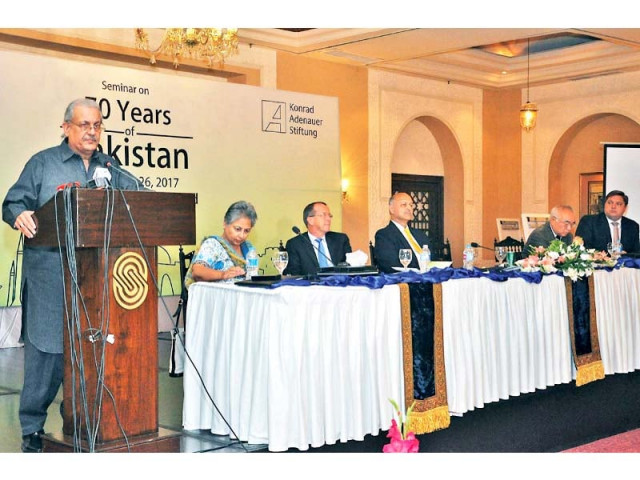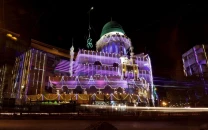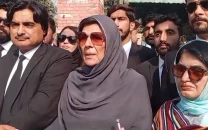Student unions key to democratic process: Rabbani
Senate chairman says wrong policies gave birth to extremism

Senate Chairman Raza Rabbani speaks at a seminar on 70 years of Pakistan. PHOTO: ONLINE
This was stated by Senate Chairman Raza Rabbani while addressing the concluding session of a seminar on “70 Years of Pakistan” on Tuesday organised by the Senate Defense Committee and the German foundation Konrad Adenauer Stiftung (KAS).
“Conscious efforts were made by the State during Zia era to promote extremism by making the country drift from its values of tolerance, compassion and love,” Rabbani said, adding that the nation has the “potential and spirit to defend its sovereignty and we would like to die than to be slave of the extremist forces.”
Dilating on the subject, he lamented how student unions were banned during the Zia regime, stifling healthy activities of students which had a liberal affiliation. On the other hand, right-wing political parties were given a free hand to boost their student wings on campuses and spread a culture and ideology of extremism in the country.
The coffee culture, student unions and trade associations gave the society a liberal and progressive leadership which had the capability of engaging the society and promoting positive discourse on issues faced by the common man, he said. Moreover, unions were considered as the cornerstone of the democratic process.
Rabbani also brushed aside the notion that Pakistani culture was Arab culture, stating that indigenous culture emanates from Sindh, Balochistan, Khyber-Pakhtunkhwa and Punjab with their synthesis making up Pakistani culture.
“Our people have faced hardships at the hands of dictators, however, it has successfully overthrown the usurpers through a democratic struggle and restored democracy while crossing all the odds and sacrificing their lives,” Rabbani stated, adding that people were unable to decide whether there should be a democracy or a dictatorship, presidential form or parliamentary system of government.
Senate Defense Committee Chairman Senator Mushahid Hussain said that the biggest challenge was that “Pakistan does not become like India, where religious extremists and the fanatical fringe has become part of the electoral mainstream.”
He said that Pakistan had fought the most successful inland war against terrorism thanks to the sacrifices of its soldiers and civilians. Moreover, Pakistan had been a model host for one of the largest refugee population for the longest period in modern history.
Hussain said that giving priority to education was key to the country’s future.
He also focused on CPEC and Pakistan’s key role as a regional hub of connectivity, noting that the country had been a key player in three key geopolitical developments over the past 50 years: the 1971 opening to China by the US, the Afghan War in the 1980s which resulted in collapse of communism, the demolition of the Berlin Wall and breakup of the Soviet Union, and the post 9/11 war on terrorism.
Historian Dr Dushka Saiyid said that despite difficulties and opposition, Pakistan came into being as a free land for the Muslims and non-Muslims living here.
She said the Quaid-i-Azam’s vision of a forward-looking tolerant state must be translated into a living reality.
“We should be grateful for Pakistan,” she said while pointing towards the state of Muslims in Kashmir and elsewhere in the region.
She urged that education, both higher and primary be given the importance they deserve.
Published in The Express Tribune, September 27th, 2017.



















COMMENTS
Comments are moderated and generally will be posted if they are on-topic and not abusive.
For more information, please see our Comments FAQ